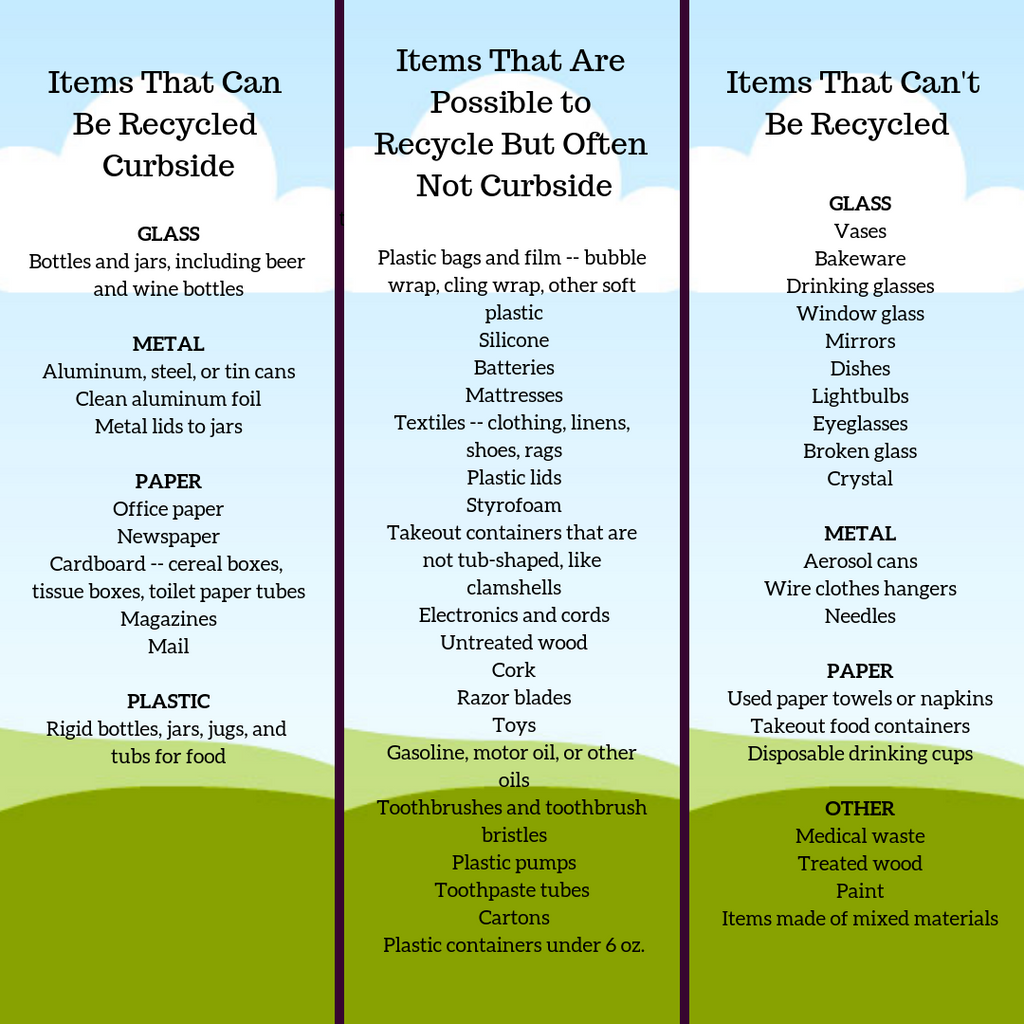In Part 2 of our Demystifying Recycling Series, we’re breaking down the rules of what and how to recycle. Every community has slightly different criteria based on the capacity of local facilities, and that’s if you’re lucky enough to have access to recycling! But whether your area goes all-in when it comes to recycling or if you just want to know what’s ok when you come across a bin at the airport, here are some best practices to make all of your recycling efforts count:
General Rules of Recycling:
- Keep it clean and dry. Even things that can be recycled won’t be recycled if they are dirty or wet. This includes dirty tissues, greasy pizza boxes, plastic containers or foil with food or residue on them. Give everything a rinse and let air dry, or even throw them in your dishwasher. Otherwise, that residue can contaminate an entire batch of recyclables.
- Just because it has a recycling sign on it, does not mean you can recycle it curbside! This just denotes the type of plastic it is. Some areas will specify which numbers you can recycle in that municipality, but check the list below for what’s generally accepted or not.
- Separate each material. Just because a glass jar with a metal lid is technically 100% recyclable, does not mean you should dispose of those two pieces together. Often human hands are doing the sorting, and items need to be sorted by material, so separate the materials to ensure they get processed correctly. Note: plastic lids cannot be recycled and must be thrown away in the garbage.
- Don’t throw your recyclables away in a plastic bag. Many facilities will throw away the whole bag because it disrupts the sorting process.
- When in doubt, throw it out. “Wishful recycling,” or tossing something into the recycling bin because you’re hoping it can be recycled often does more harm than good. When the wrong type of material gets mixed in with a batch of recyclables, it contaminates the rest and can end up getting the entire batch sent to landfill.

Frustrated by all the things that are inconvenient or impossible to recycle? It’s an important reminder of why reducing our use of these materials is so crucial. Prioritize purchasing items made of reusable or biodegradable materials to minimize your impact and be a responsible consumer.
Wondering what the guidelines are for your city or curious about an item not listed here? Check out Earth 911’s awesome database for answers to all of your recycling questions!
Let us know what other questions you have about recycling, and we’ll try to address it in a future post!



